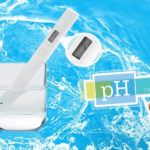Coffee is more than just a beverage to boost alertness and energy. Research suggests that consuming a moderate amount of coffee daily may reduce the risk of type 2 diabetes and certain cancers, while also promoting liver, heart, and brain health, ultimately contributing to longevity.
When it comes to coffee, some prefer the aromatic pleasure of a hot cup, while others relish the refreshing experience of iced coffee. So, which one is the healthier choice?

Coffee: A Beverage That Offers More Than Just a Boost
Hot Coffee vs. Iced Coffee: Which Provides a Superior Experience?
According to Dr. Majid Basit, a cardiologist at Memorial Hermann Hospital in Texas, hot coffee contains more antioxidants than iced or cold-brewed coffee. This was confirmed by a 2018 study published in the journal Scientific Reports. These antioxidants not only support overall health but also have the potential to prevent or slow down cell damage.
A study from the American Chemical Society revealed that hot coffee contains slightly more caffeine than its iced counterpart. Dr. Basit explains, “Caffeine provides a boost to brain alertness and energy levels.” However, along with these benefits, he also emphasizes that caffeine can increase stomach acid, causing stomach aches for some individuals. Additionally, the cardiologist notes that caffeine can increase urine output, blood pressure, and heart rate, while decreasing the body’s ability to absorb calcium, potentially leading to reduced bone density.
Nevertheless, the American Chemical Society points out that the difference in caffeine content between hot and iced coffee is minimal. Generally, whether you opt for hot or cold coffee, your body will still receive a certain amount of caffeine.
Another notable difference between hot and iced coffee lies in their aroma. A study published in The Journal of Agricultural and Food Chemistry in 2008 indicated that coffee aroma has antioxidant properties and can induce a relaxing effect on the body. Dr. Basit mentions, “Hot coffee offers more benefits than iced coffee due to the higher water content, which enhances its efficacy for the body.”

The American Chemical Society Notes a Minimal Difference in Caffeine Content
Here’s What You Should Really Focus on When Drinking Coffee
Rather than debating hot or iced, here are the key considerations when it comes to enjoying your coffee:
Moderate Your Coffee Intake for Optimal Health
Excessive coffee consumption can lead to stress, anxiety, and disrupted sleep patterns. According to Mayo Clinic, it is recommended to limit caffeine intake to no more than 400mg per day, which equates to approximately four cups of coffee.
Avoid Coffee in the Late Afternoon and Evening
Caffeine in coffee can significantly impact your sleep quality. To maintain a good night’s rest, refrain from drinking coffee after 2-3 p.m.
Pay Attention to Your Body’s Response
Everyone metabolizes caffeine differently and reacts uniquely to coffee. Be mindful of your body’s response. If you experience symptoms like stomach aches, indigestion, bloating, or a rapid heartbeat, reconsider your coffee intake and consult a medical professional.
Mind the Add-Ins: Sugar, Cream, and Sweeteners
Adding excessive amounts of sugar, cream, or artificial sweeteners to your coffee can increase calorie intake and negatively impact your health.
Stay Hydrated
As caffeine has a diuretic effect, ensure you drink enough water when consuming coffee to counteract any potential dehydration.
Don’t Drink Coffee First Thing in the Morning
Research suggests that cortisol, the stress-related hormone, tends to peak when we first wake up. Therefore, drinking coffee too early in the morning can exacerbate cortisol levels, leading to increased anxiety and stress. Experts recommend the ideal time for your first cup of coffee is between 9:30 a.m. and 11:00 a.m.
How to Make Sure You Buy the Perfect Mattress for Optimal Sleep and Health
Want to know the essentials of selecting a quality mattress that will give you a peaceful night’s sleep and boost your health? Look no further! This article provides all the key advice for finding a mattress that suits your specific needs and ensures you get a well-deserved rest. Get the important information you need to make the perfect mattress choice right here.
How to Make Smart Choices When Selecting a Drinking Glass for Better Health
From morning cups of coffee to an afternoon soda, cups are a staple in many people’s lives. But, with the variety of cup materials available—including glass, porcelain, plastic, and paper—it’s important to understand the potential health risks associated with not choosing the correct cup for the job.





































